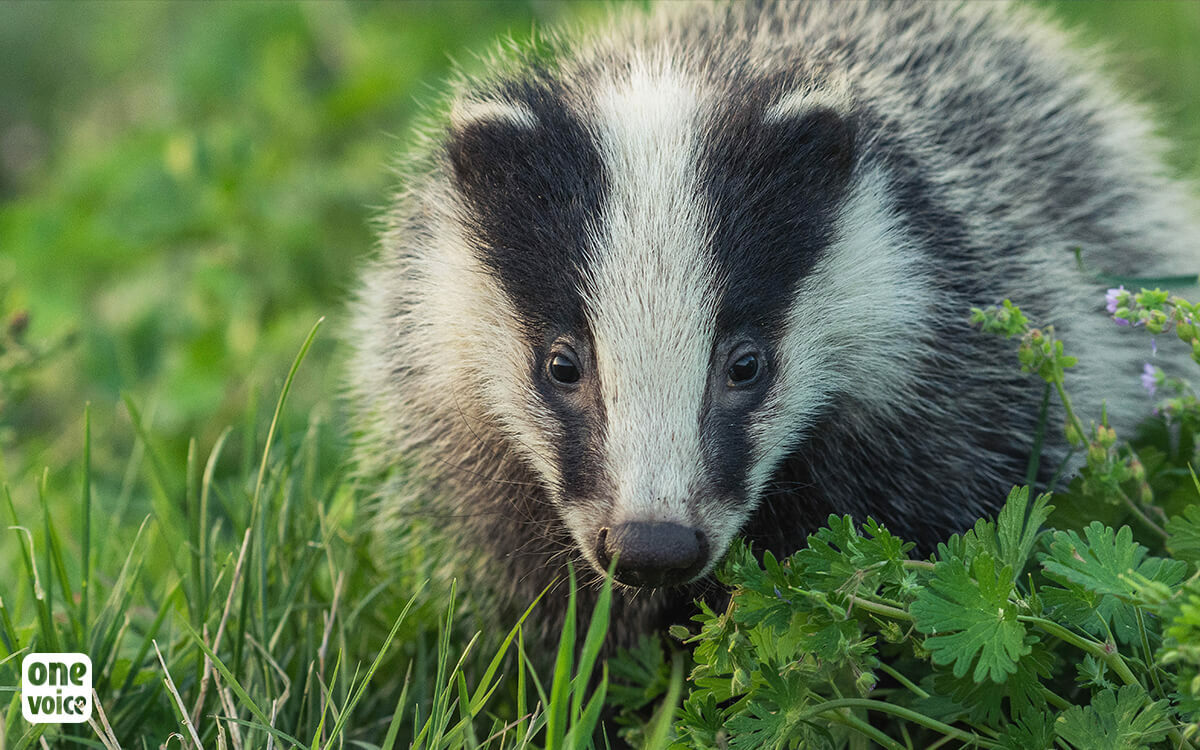

Underground badger hunting with hounds: the State Council recognises protection given to the “young”
Referred to by ASPAS, AVES France, and One Voice, on 28 July, the State Council returned its decision relating to the legality of the article from the Environmental Code allowing the opening of additional periods for underground badger hunting with hounds by prefects. Although this is a mixed decision, education has already had the effect of leading administrative tribunals to suspend the additional periods in place.
Underground hunting with hounds is a hunting practice that consists of digging out animals with the help of dogs to locate and corner them, then pickaxes and shovels to dig, and finally giant pliers and knives or guns to drag them out and then slaughter the so-called hunted animals. Prefects can authorise additional periods of underground hunting with hounds with decrees, which is in addition to the annual hunting seasons, and which therefore take place between mid-May and mid-September. A ministerial decree regulates the way in which the prefects can publish these decrees on a local level. It is this ministerial decree that our associations are attacking before the State Council.
ASPAS, AVES France, and One Voice have been condemning this cruel hunting method for years, and have specifically filed a complaint at the Bern Committee and obtained numerous suspensions of prefectural decrees in recent years, thus sparing thousands of badgers.
At the centre of the debates: the young
While rejecting associations’ pleas on the grounds that the contested article does not explicitly authorise killing the “young”, he recalls the ban on killing badger cubs. In doing so, he undermines hunters’ and the Ministry of the Ecological Transition’s arguments that consist of pretending that this ban does not apply to badger hunting.
It must be clarified that the “young”, in a scientific sense, are animals that are not able to reproduce and thus to contribute to the continuation of the species. Hunters taking weaning as the date that badgers become an adult is scientific nonsense because weaning is only one step in a badger’s feeding journey. Quite logically, no scientific study mentions weaning as a sign of moving into adulthood.
Then, without commenting on scientific studies relating to the species’ biology, the State Council took the debate back to a local level: they indicated that the Prefect is required to ensure, with regard to the local situation, that “such an extension [on underground hunting with hounds] is not likely to harm the state of the badger population or to favour ignorance, by hunters, of the legal ban on destroying young badgers”.
Incomplete or missing data
Yet, on one hand, campaigns by associations to gather information carried out in recent years around prefectures have shown that they keep very little data, or even none, on badger populations on a local level. The reality of the damage that the prefectures allege to base their decrees on is never shown, including when it comes to defending these decrees in front of administrative judges.
On the other, it has also been established that in most departments, up to 40% of those killed each year are young badgers that are not sexually mature.
As a consequence, based on scientific data, the administrative judges are suspending the additional periods for underground badger hunting with hounds en masse, specifically on the grounds of the impact on the badger cubs.
The decision by the State Council has convinced tribunals to follow their lead: since this decision was published, no less than five rulings have been delivered to suspend additional periods owing to: 1) their impact on “young” badgers; and 2) the lack of reliable data kept by prefectures both on the badger populations in each department and the damage that they are alleging.
While we regret that the State Council has not taken the opportunity to definitively put an end to this dispute, since tribunals on a departmental level are continuing to be referred to with pleas against inevitably illegal additional periods, we still welcome their contribution, putting an end to absurd debates and finally making prefectures responsible when it comes to badger hunting.
Translated from the French by Joely Justice